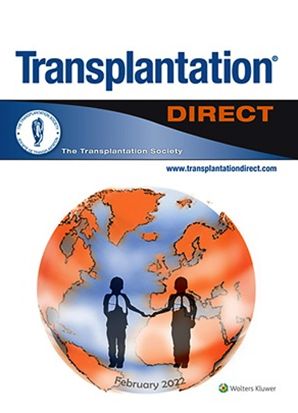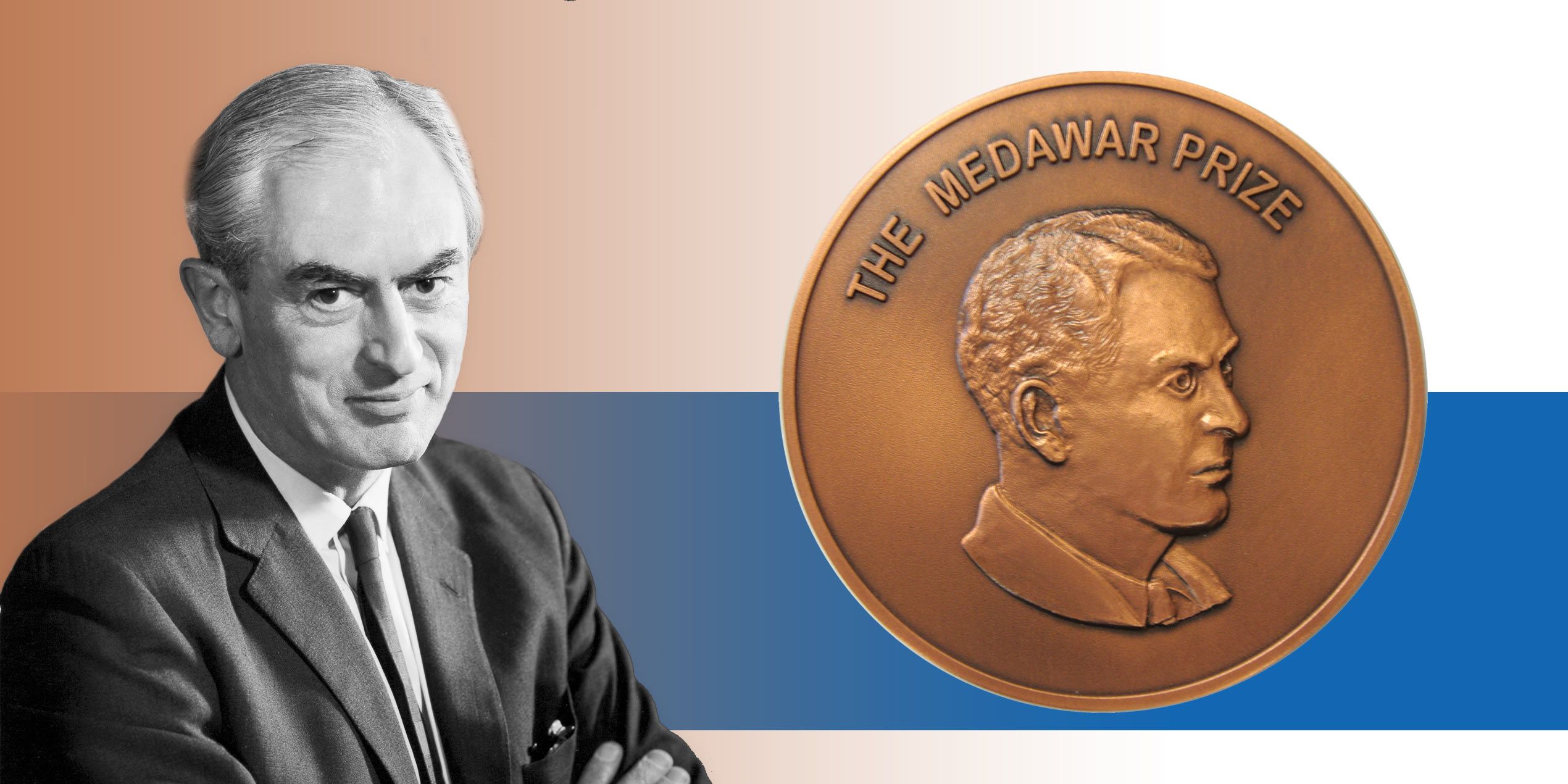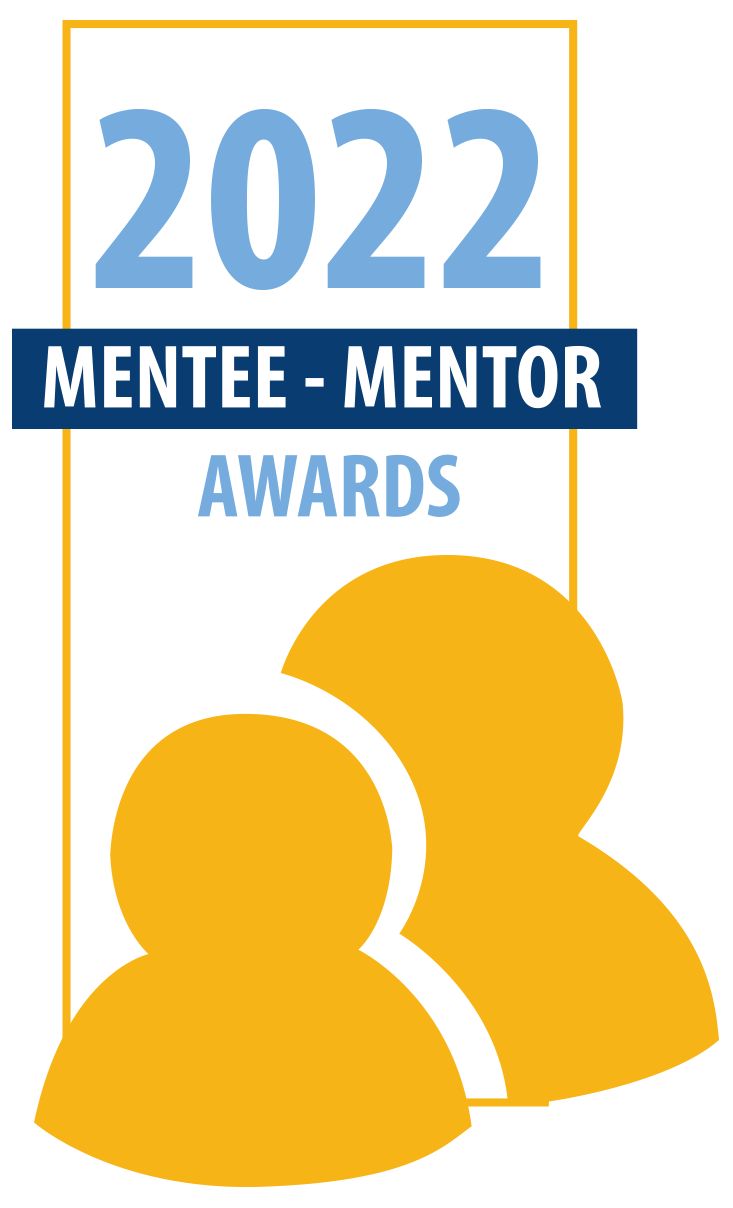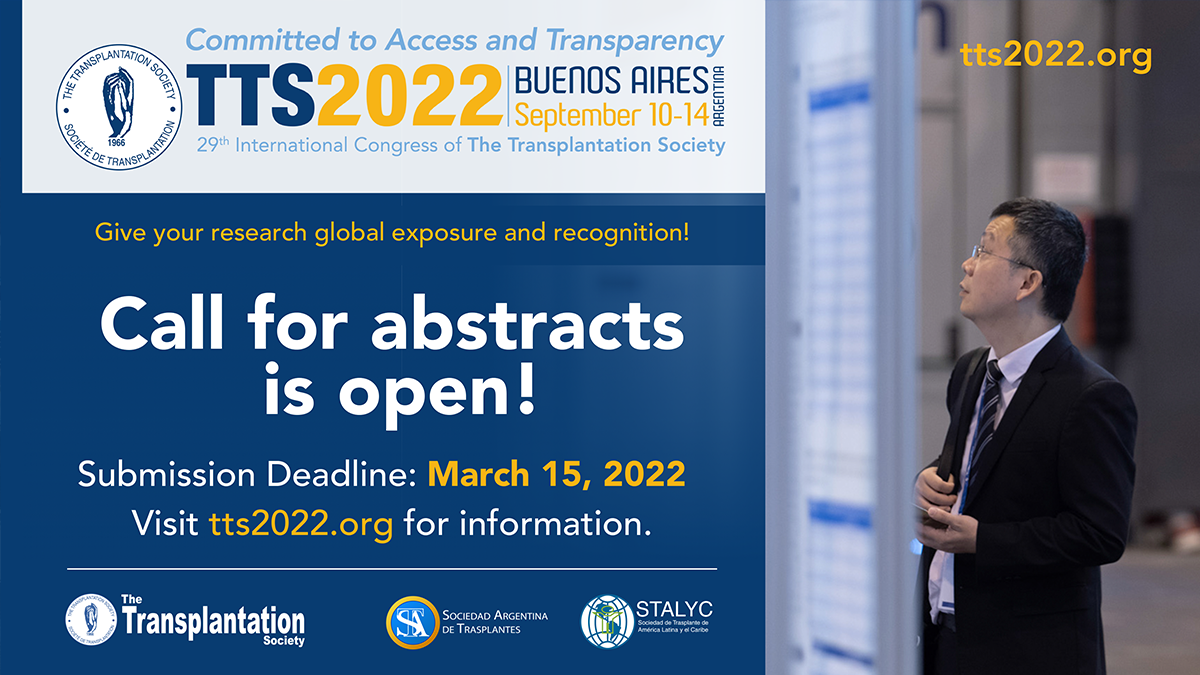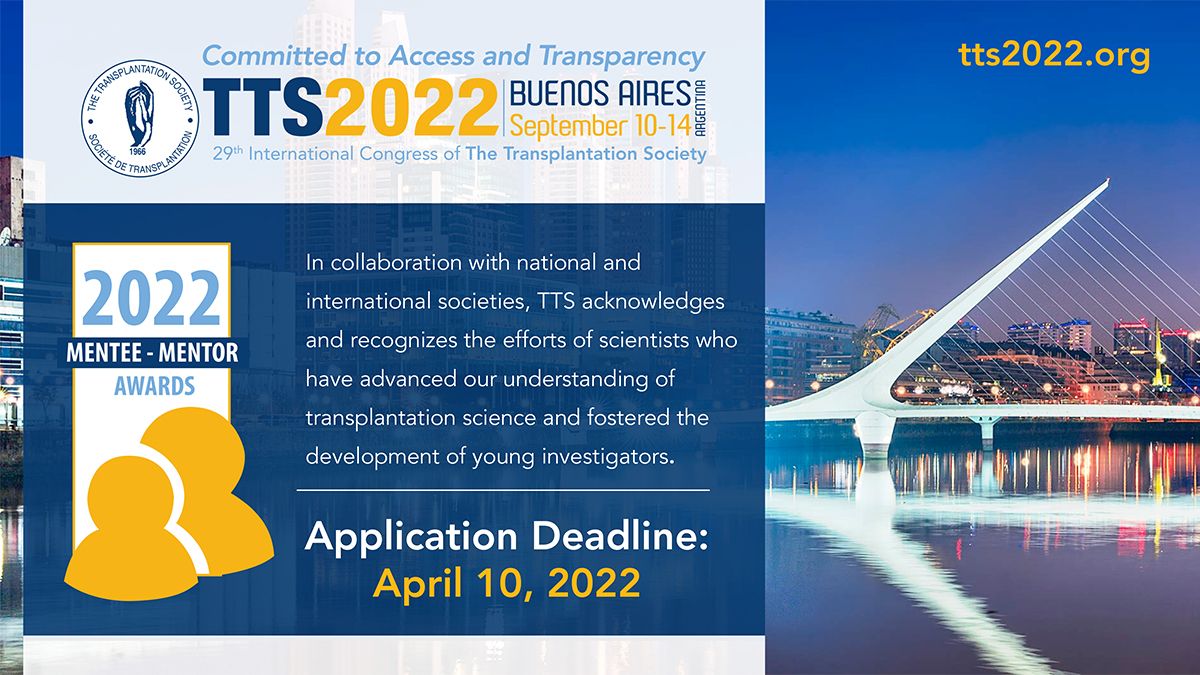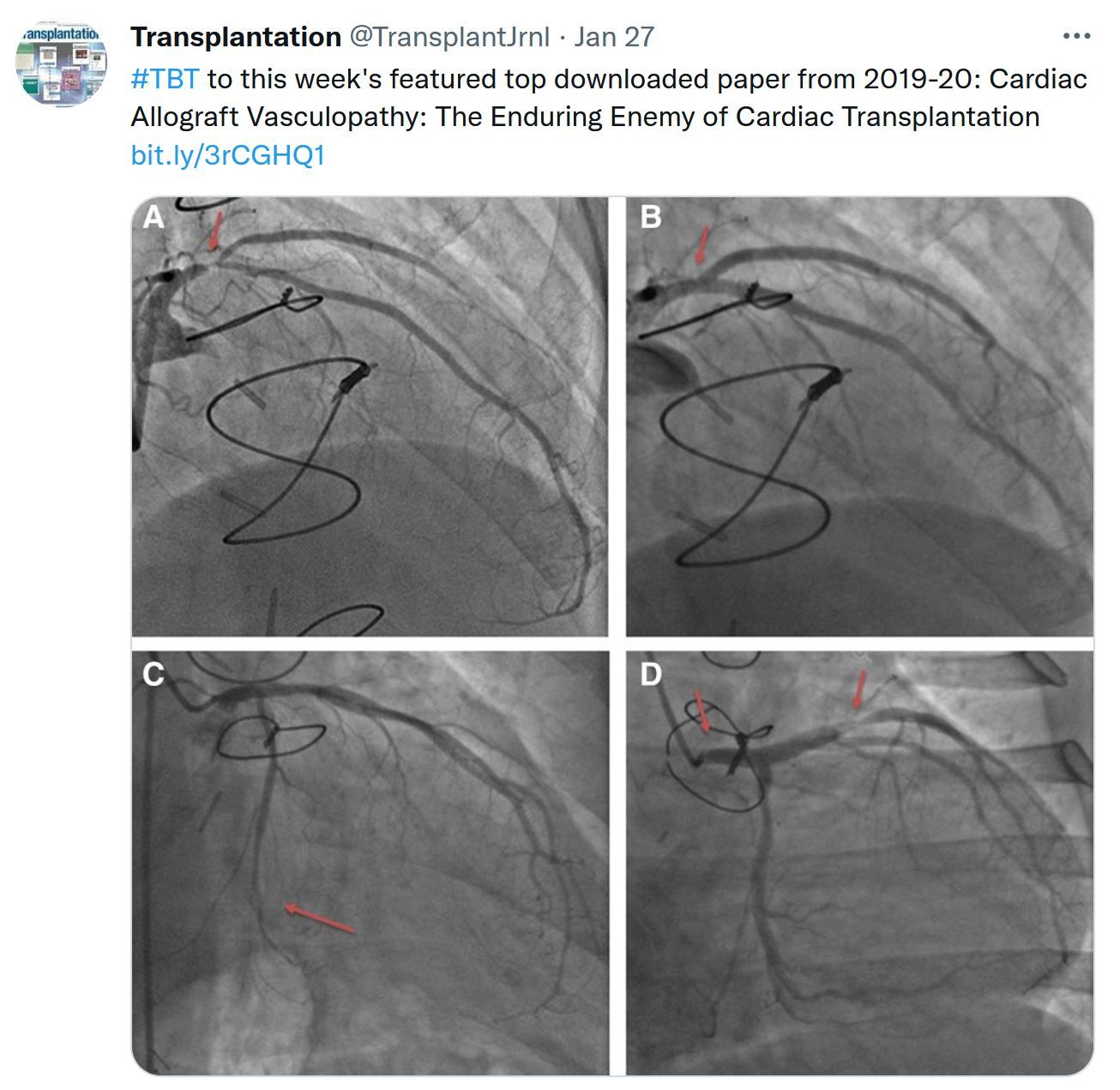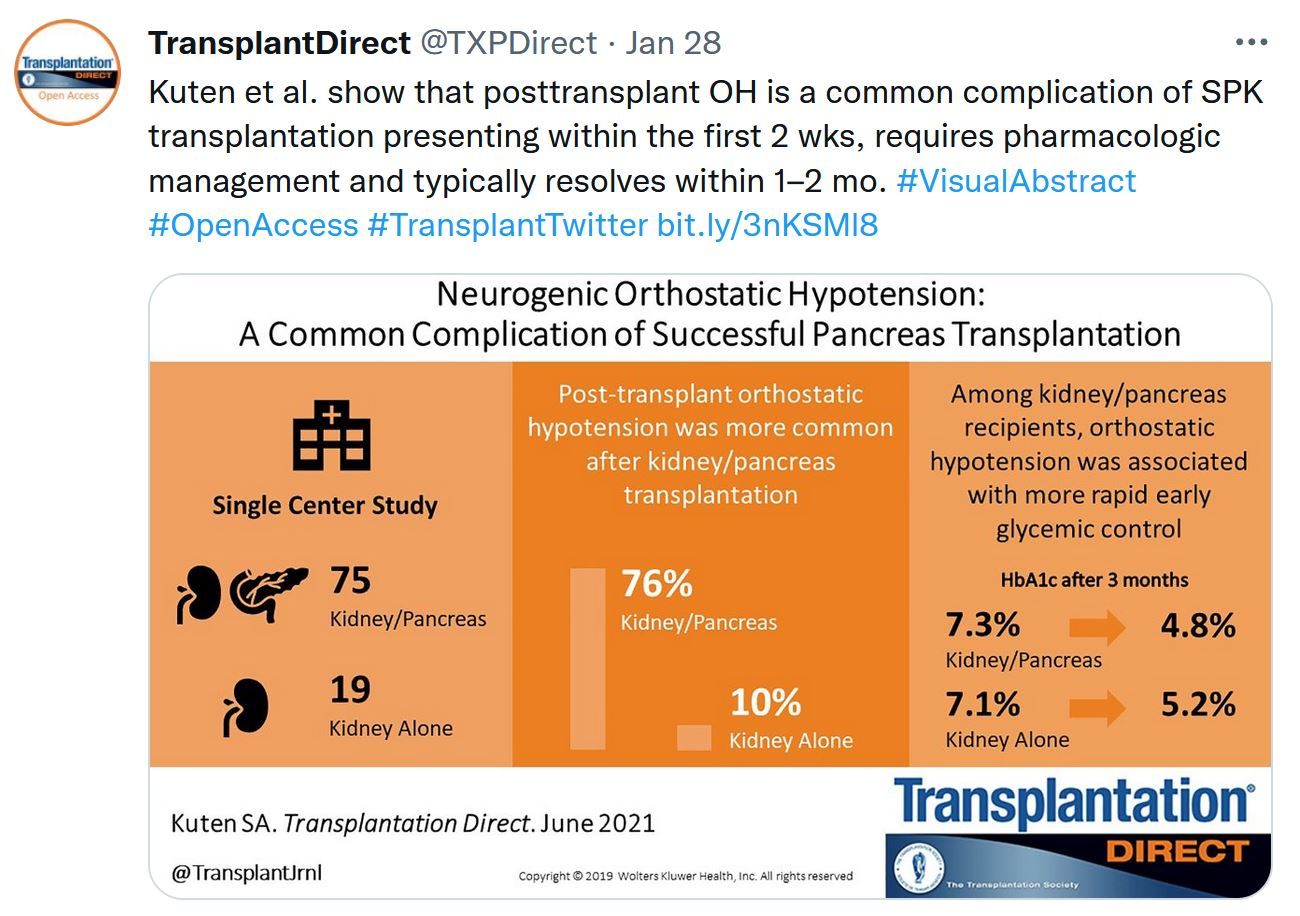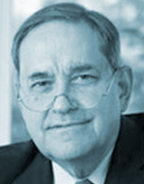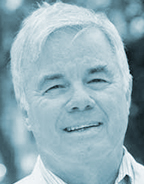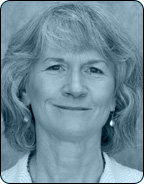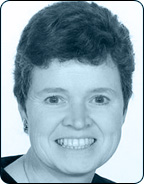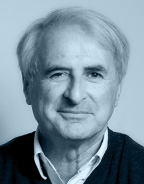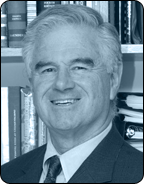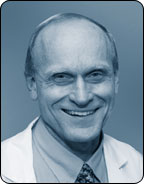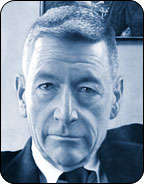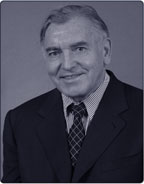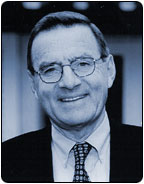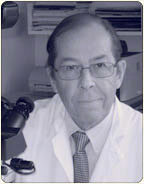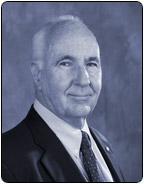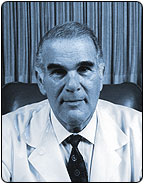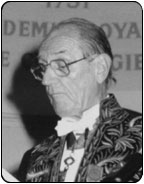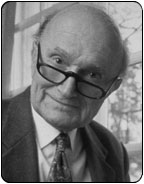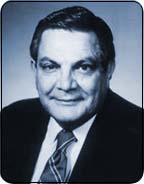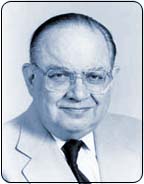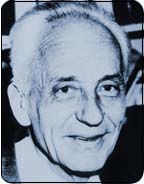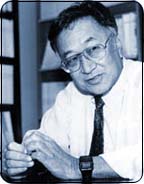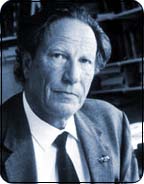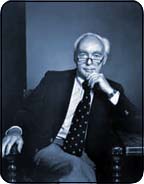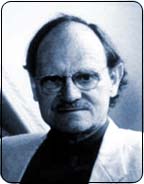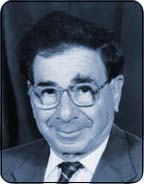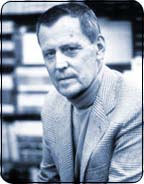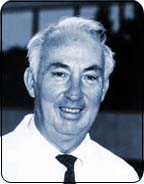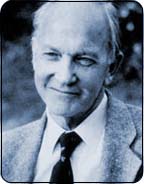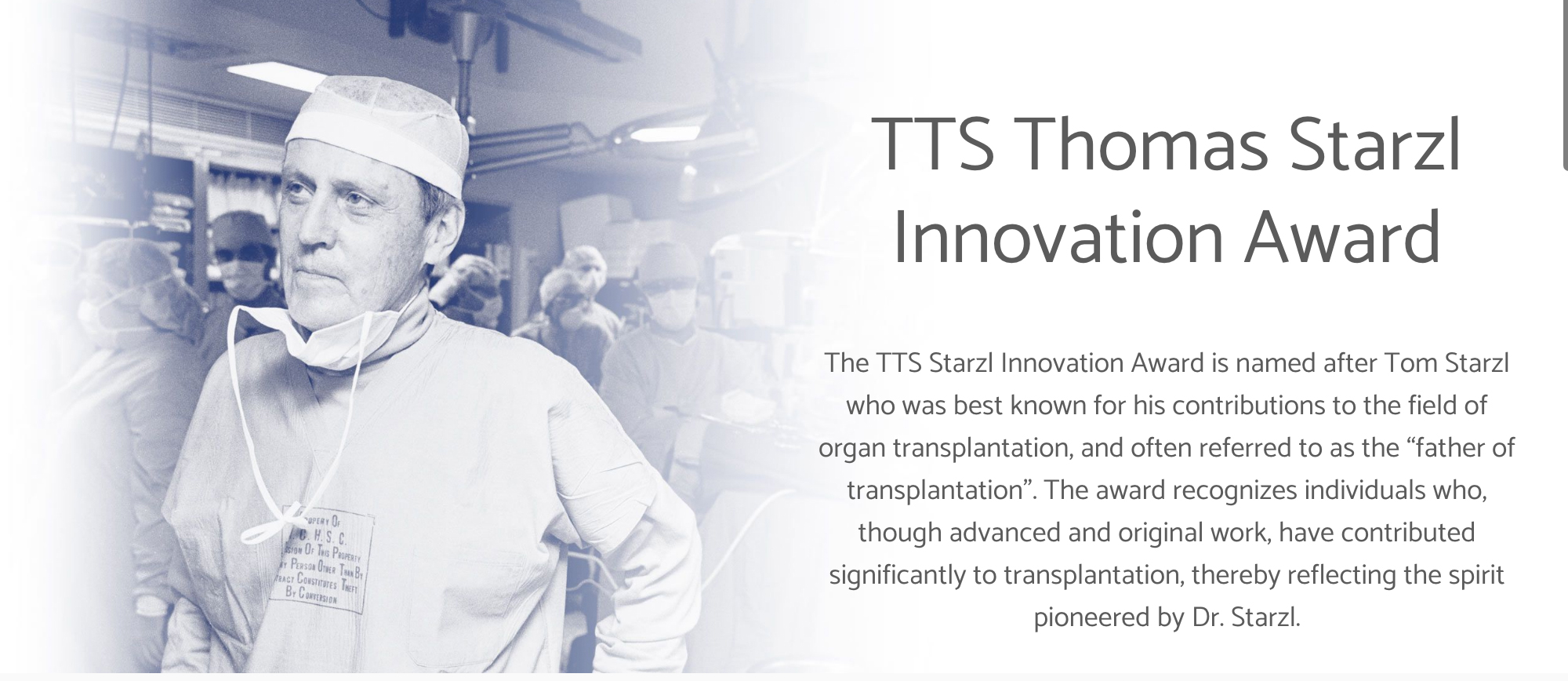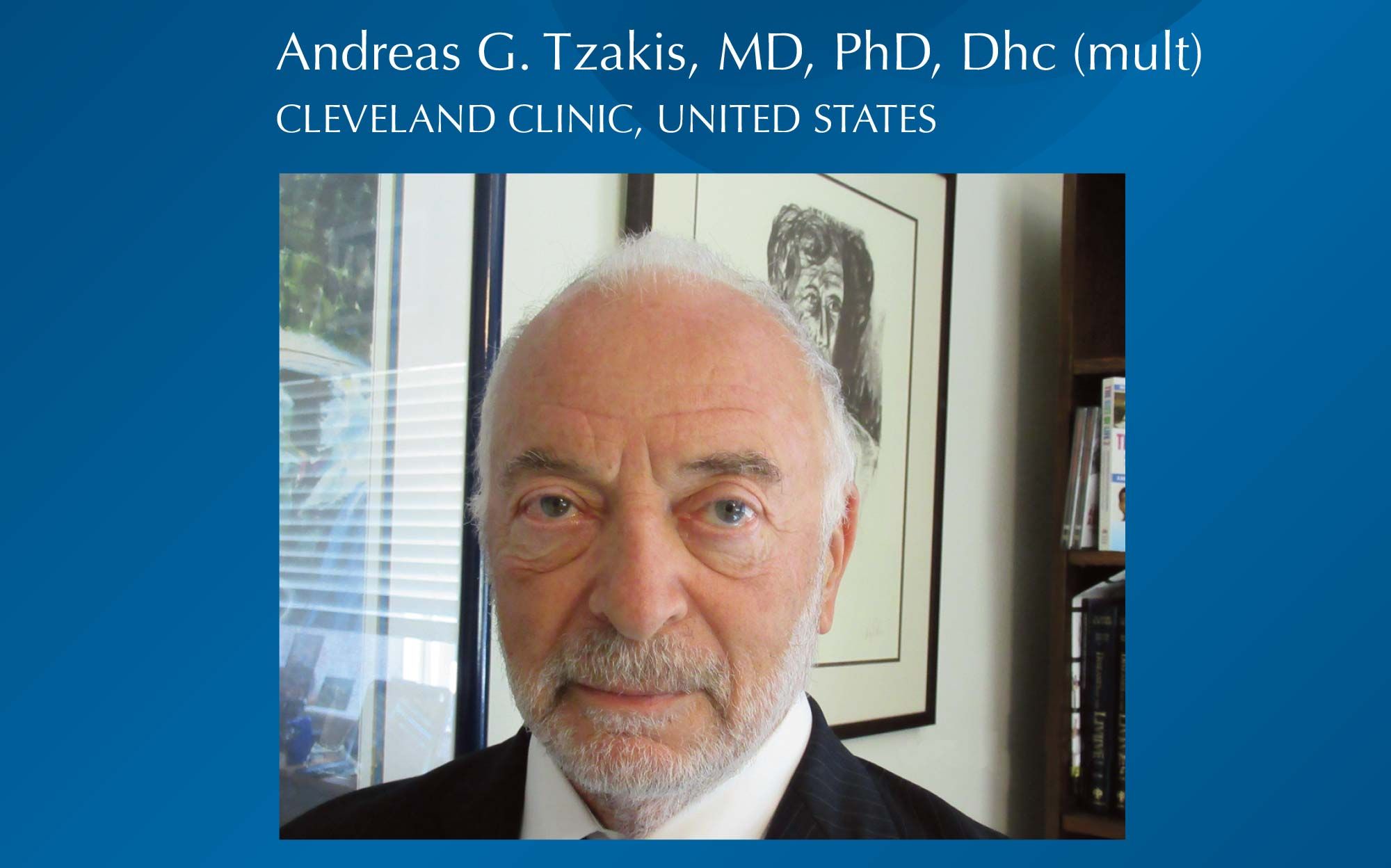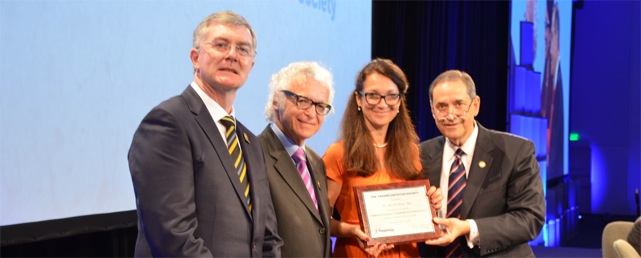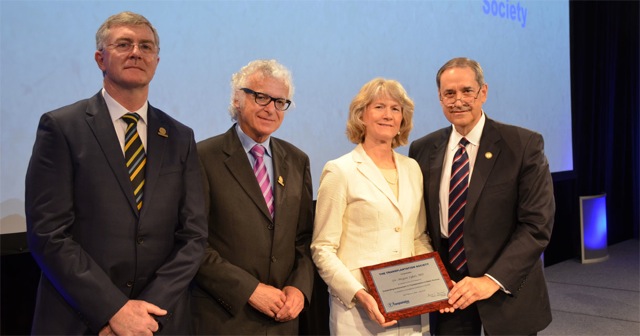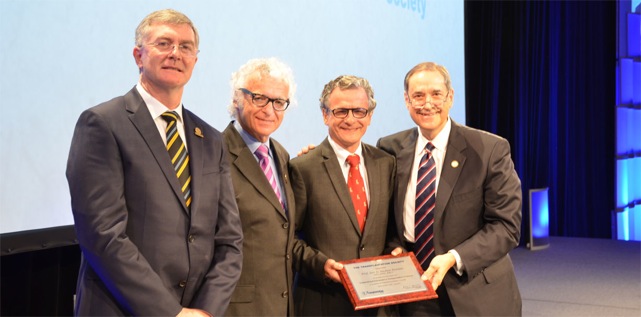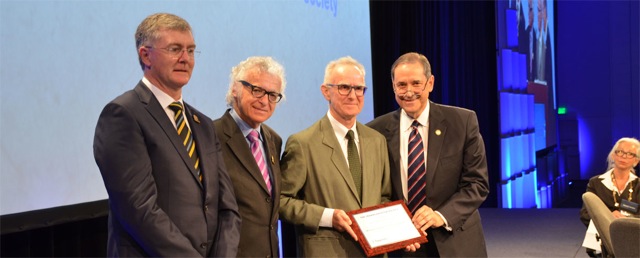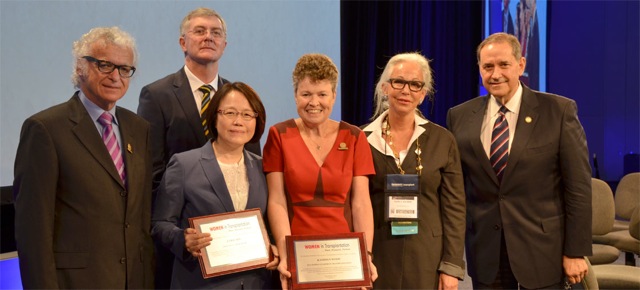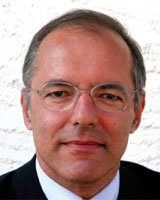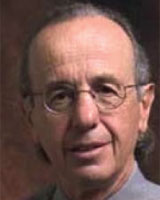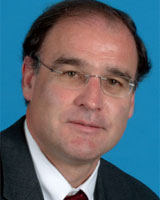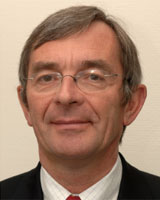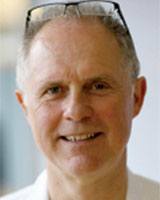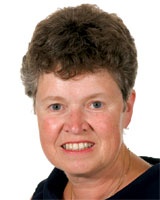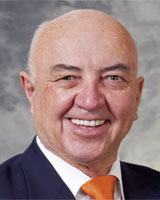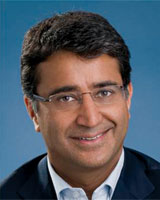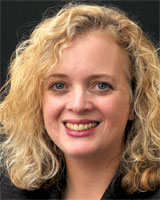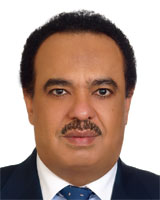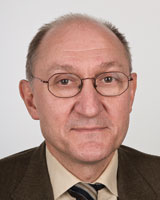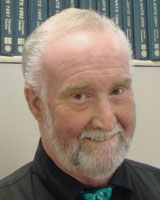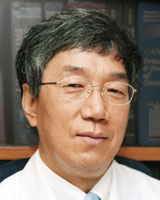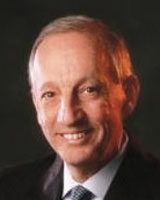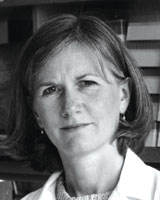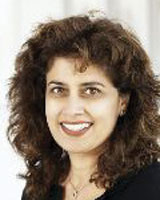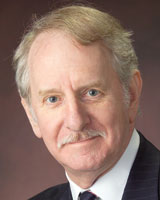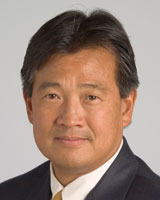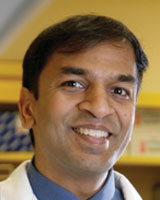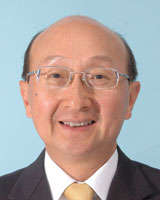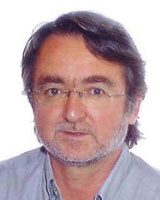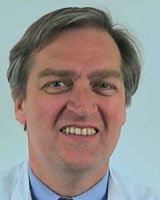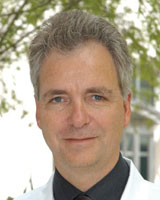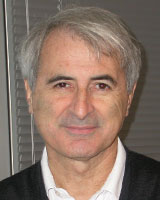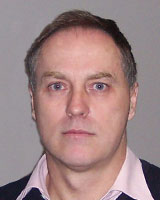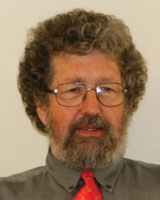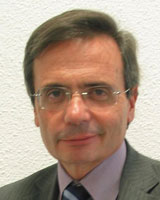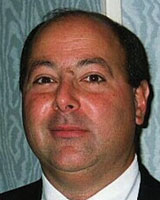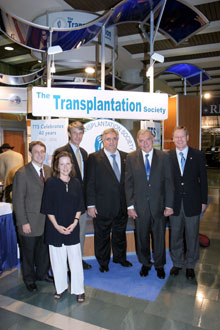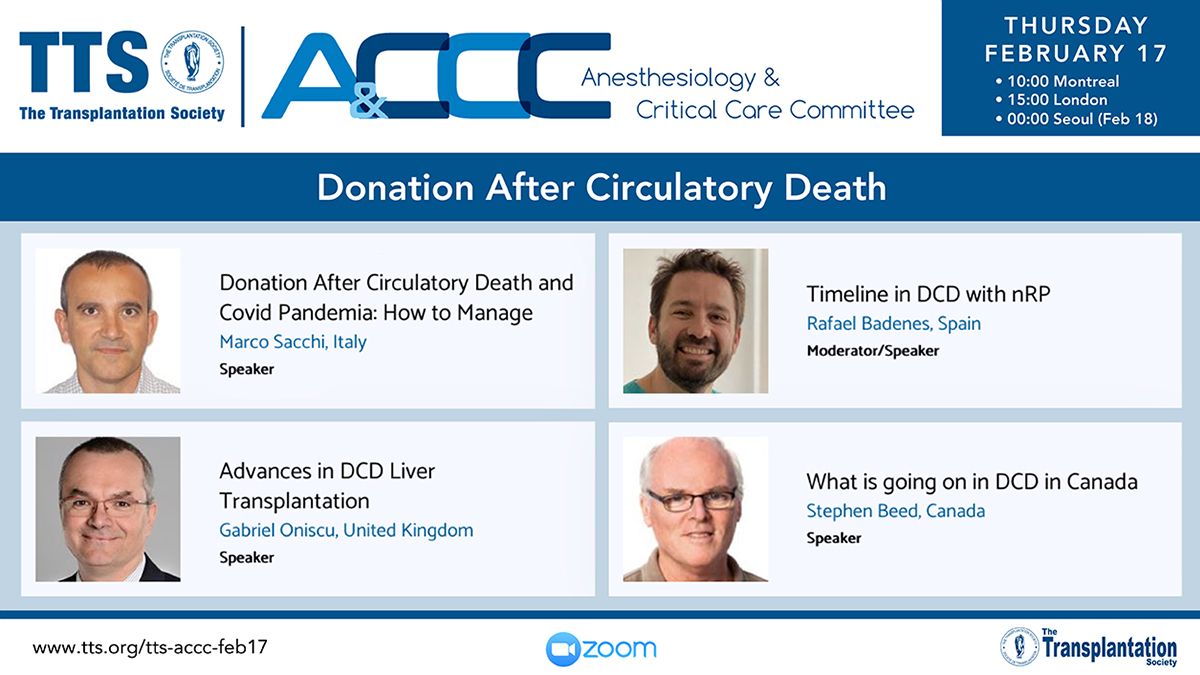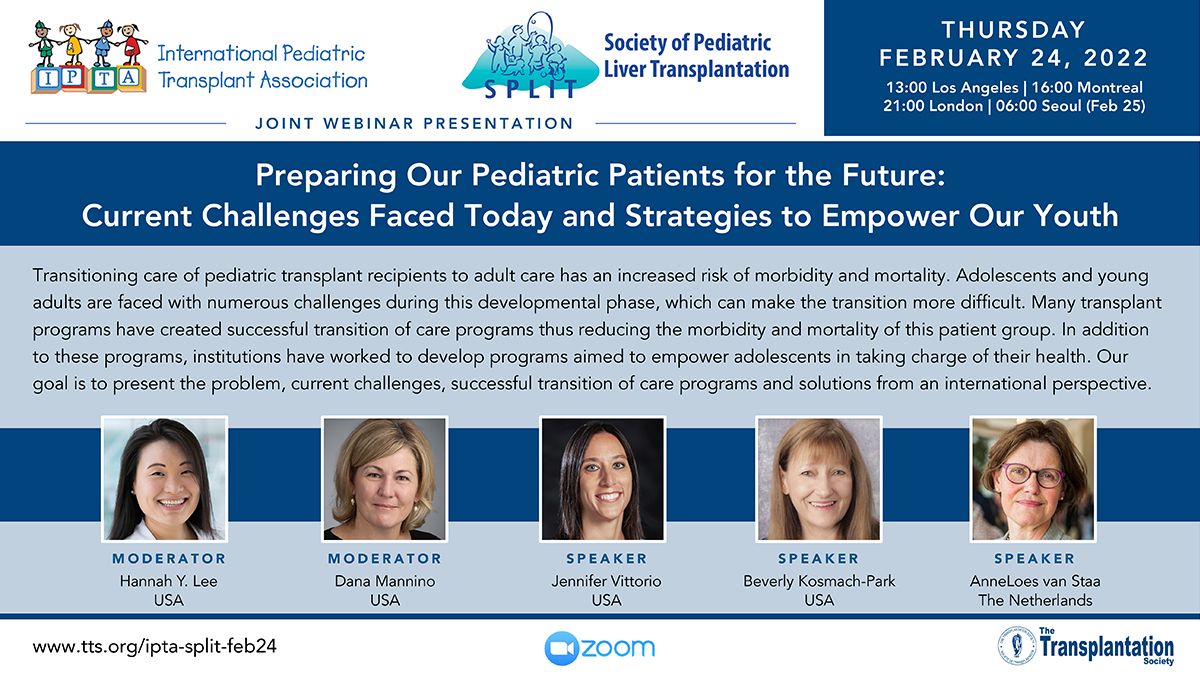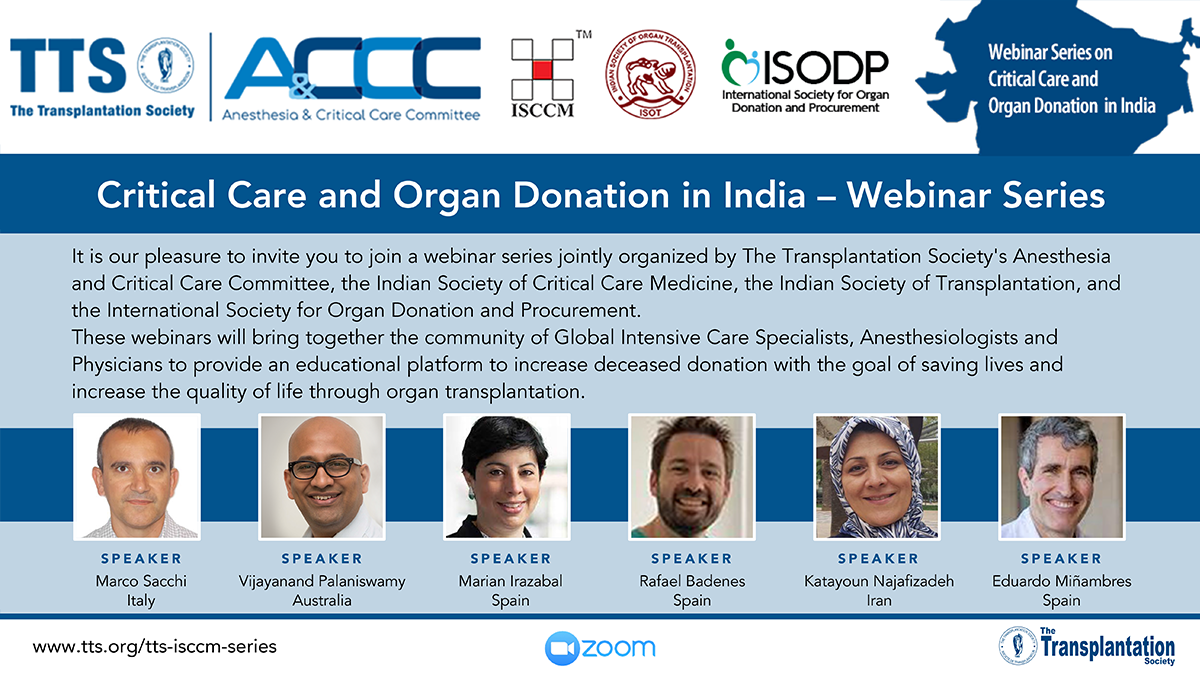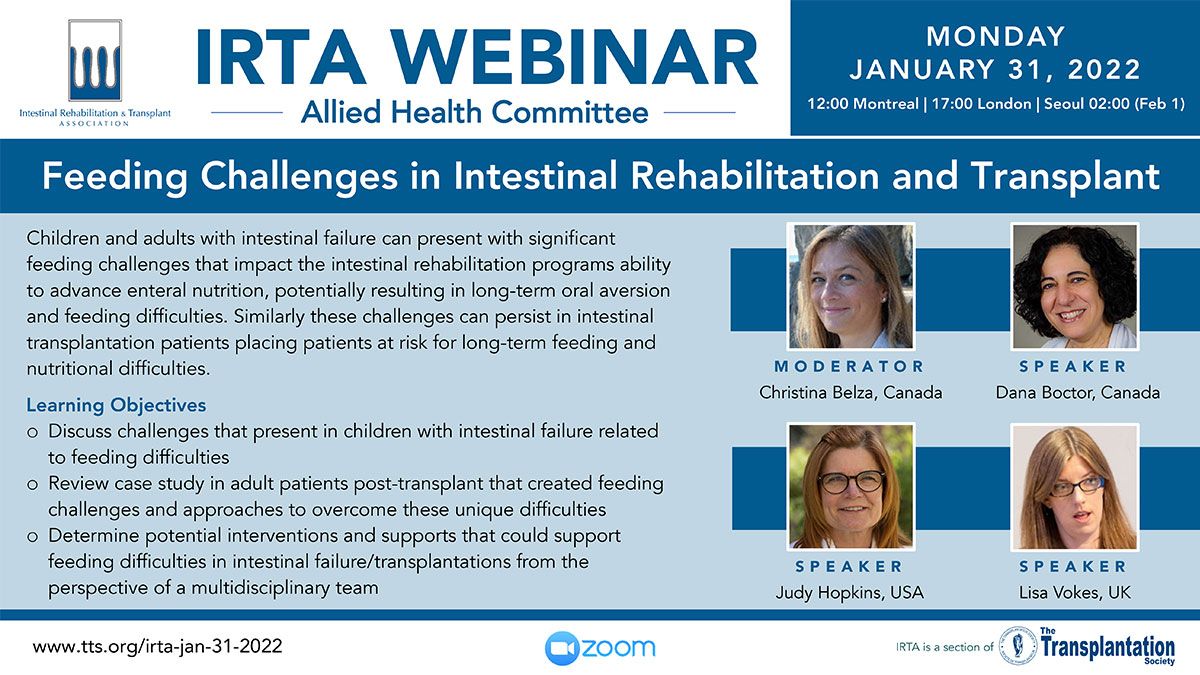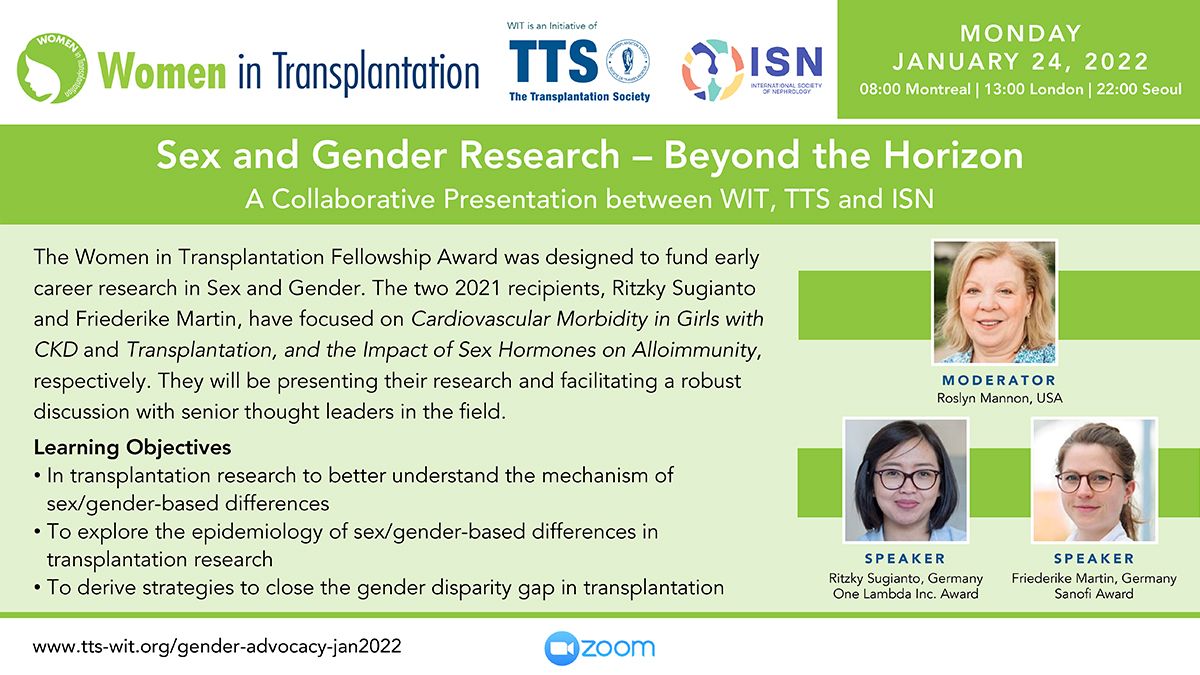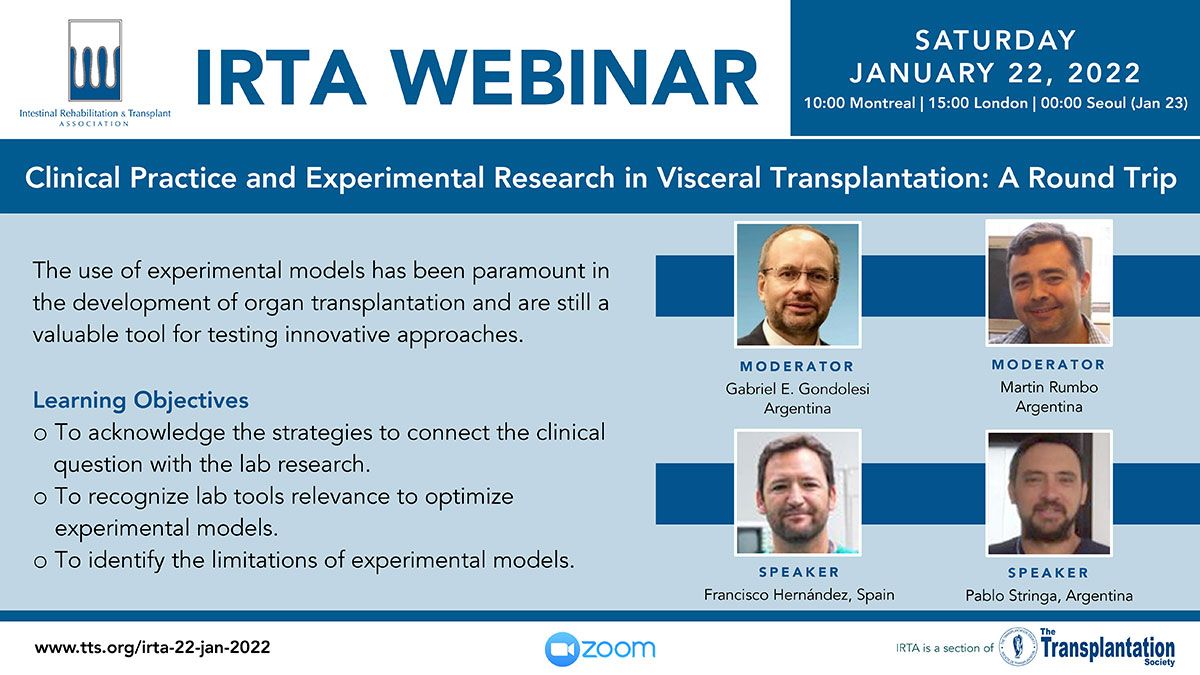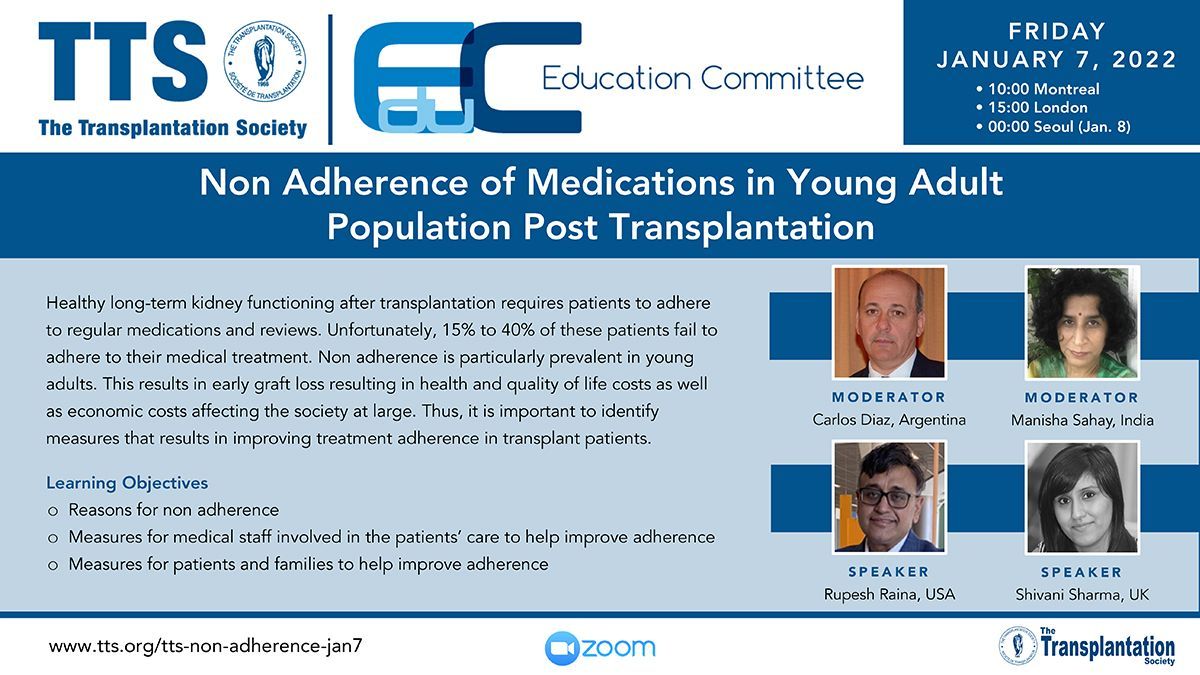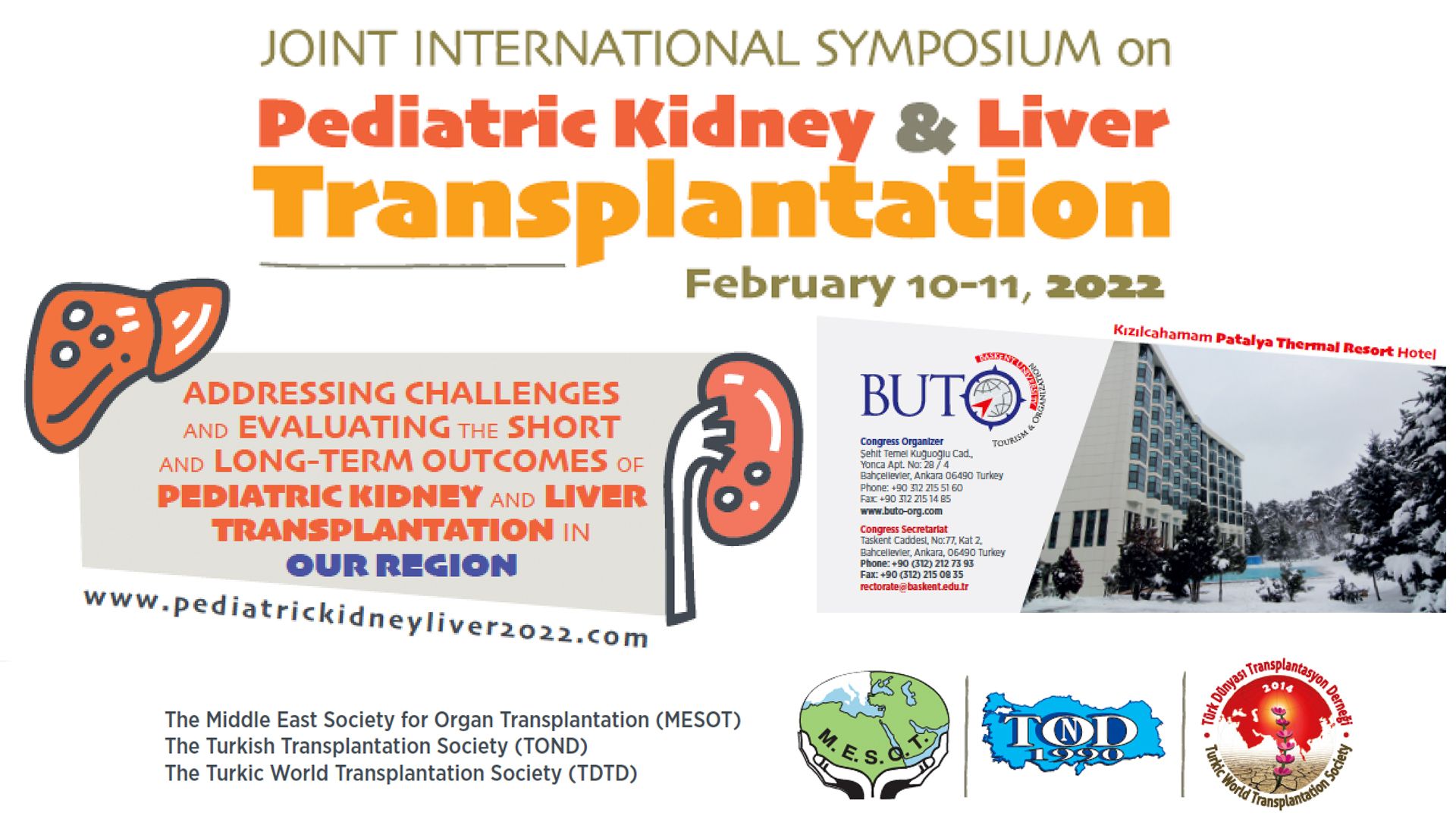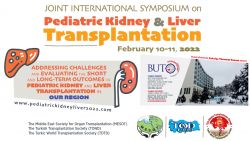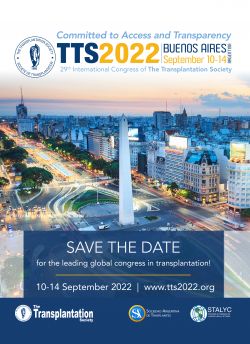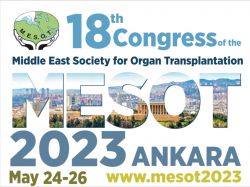
These awards recognize individuals who have made a major international impact in the field of transplantation. The awards are given out at each International Congress of The Transplantation Society.

David Cooper studied medicine at Guy’s Hospital Medical School of the University of London (now merged with King’s College London), where he also carried out research in heart storage for the PhD degree. He subsequently trained in general and cardiothoracic surgery in Cambridge and London before taking up an appointment in cardiac surgery at Groote Schuur Hospital in Cape Town. There, with Winston Wicomb, he developed a hypothermic perfusion device to store donor hearts, initially in large animals and subsequently in the clinical program. With Dimitri Novitzky, he investigated the detrimental effects of brain death on donor organ function in pigs and baboons before establishing thyroid hormone therapy in the management of potential organ donors in clinical transplantation. In 1987, he relocated to the Oklahoma Transplantation Institute in Oklahoma City where he continued to work in both the clinical and research fields; with colleagues, he identified the importance of the Gal antigen in xenotransplantation. After 17 years as a surgeon-scientist, he decided to concentrate his attention on research, initially in the TBRC at the MGH and subsequently at the Thomas E. Starzl Transplantation Institute at the University of Pittsburgh. For the past 25 years, his major interest has been the xenotransplantation of organs or islets in pig-to-nonhuman primate models.

After receiving his undergraduate and medical degrees from the University of North Carolina, Chapel Hill, Dr. Jordan completed a pediatric internship and residency at the University of California, Los Angeles. He completed three fellowships: one in pediatric nephrology at UCLA, one in experimental pathology in the Department of Immunology at Scripps Clinic and Research Foundation, and the third in dialysis and transplantation at Children's Hospital of Los Angeles. He is board certified in pediatrics, pediatric nephrology and diagnostic laboratory immunology.
For more than two decades, Dr. Jordan has performed extensive research into various aspects of immunology and transplantation, funded by dozens of research grants and awards, including two prestigious National Institutes of Health controlled clinical trials in kidney transplantation grants. He has written hundreds of articles and abstracts published in scientific journals, presented findings at medical and scientific organisations and authored about two dozen book chapters. Dr. Jordan's ground-breaking research in transplant immunology led to the development of a drug therapy protocol that significantly reduces the risk of a transplanted kidney being rejected.
Dr. Jordan has extensive experience with desensitization for incompatible kidney transplantation and currently has six investigator-initiated clinical trials examining novel therapies for desensitization and treatment of antibody-mediated rejection. He and his team pioneered the use of intravenous immunoglobulin to reduce the risk of rejection in difficult cases in which other medications failed. He also created a technique to detect post-transplant lymphoproliferative disorder in its earliest stages.

Dr. Visist Dhitavat has been the Director of the Thai Red Cross Organ Donation Centre since it was established in 1994.
He is responsible for the development, maintenance and expansion of the whole process of organ donation and transplantation system in Thailand. He spends time and effort in giving knowledge and education, as well as in promoting positive attitudes toward organ donation both to the public and to healthcare professionals. He has been supported widely by all sectors: private, governmental and the media. Public awareness of organ donation has been raised through many means: news, educational materials and campaigns. He has developed good collaboration among healthcare professionals by visiting hospitals throughout the country to educate and persuade them to participate in organ donation process, and to push the organ donation to be a part of their routine work. In addition, he has set-up networks of in-house transplant coordinators at each hospital. Through these efforts, the rate of organ donation has increased by more than 10% per year.
For the last decade, Dr. Dhitavat collaborated on organ donation and transplantation meetings organized by the WHO.
His aim is to achieve national self-sufficiency for organ donation and transplantation.

Jan Lerut, MD, PhD, trained in surgery at the Katholieke Universiteit Leuven (KUL), Belgium, under Prof. J. Gruwez; at the H. Heine University of Dusseldorf, Germany, under Prof. K. Kremer; and at the Université Catholique de Louvain (UCL), Belgium, under Prof. P.J. Kestens.
From the start of his surgical career, Dr. Lerut has been involved in organ transplantation. This interest resulted in a transplantation fellowship at the Universities Paris-Sud-Centre Hépatobiliaire Paul Brousse under Prof. H. Bismuth and at Pittsburgh Medical Centre under Prof. Thomas E. Starzl. He was Director of the Abdominal Transplant Program at the Inselspital University of Bern, Switzerland, from 1987 to 1991 (Prof. L.H. Blumgart).
Dr. Lerut is currently Professor of Surgery and co-Director of the Department of Abdominal and Transplantation Surgery, and Director of the Starzl Abdominal Transplant Unit at the University Hospital Saint Luc and the UCL Transplant Centre in Brussels.
Dr. Lerut has authored more than 300 peer-reviewed articles, 24 book chapters and 24 scientific films. He made more than 600 communications on national and international congresses, mostly devoted to liver transplantation. He co-edited the book Regenerative Medicine Applications in Organ Transplantation. His research interests focus on the development of technical refinements in liver transplantation, the value of liver transplantation in hepato-biliary oncology, the use of minimal immunosuppression and tolerance induction.

Professor S. Adibul Hasan Rizvi is the founder of Sindh Institute of Urology and Transplantation, Pakistan which started in 1971 and has progressed into the largest urology, nephrology and transplant centre of South Asia. It is based on the model of community government partnership. As a humanitarian, Prof. Rizvi’s mission has been to prove that everyone has the right to the best treatment that can be offered, and all of it free of cost.
Prof. Rizvi founded a high ethical standard transplant programme in Pakistan, the Sindh Institute of Urology and Transplantation (SIUT). SIUT has performed over 5000 living related kidney transplants with lifelong follow-up and immunosuppression free with dignity. He performed the first deceased kidney transplantation and initiated live related liver transplantation in the country with the help of Kings College and the Shiraz Organ Transplant Centre.
He has played a pivotal role in the campaign against transplant tourism and helped in the promulgation of transplant legislation to increase altruistic transplants and allow deceased donation. He is a Past President of the Middle East Society of Organ Transplantation; the Asian Society of Transplantation; the Nephrology, Urology, and Transplantation Society (NUTS) of the South Asian Association of Regional Cooperation (SAARC); and the Transplantation Society of Pakistan. He is a well known figure in the international scene and has been given several awards for his immense contributions in the field of medicine and transplantation, which include the Ramon Magsaysay Award, the St. Paul’s Medal, the Hunterian Professorship, the Felix T. Rapaport Award, the National Kidney Foundation Medal, and the Pioneer Award of the International Society of Nephrology (ISN).


Lori West, MD, DPhil, FRCPC, is an acknowledged leader internationally in the field of paediatric cardiac transplantation and immunology. Her pioneering clinical work in ABO incompatible infant heart transplantation has had an enormous impact in the field worldwide. This together with her laboratory investigations exploring the mechanisms of tolerance in the B cell compartment that develops in infants who receive an ABO incompatible graft has generated new insights in the field. Lori has taken leading roles at her own institution where she is Director of the Albert Transplant Institute and nationally where she pioneered the development of the Canadian National Transplant Research Programme, a multi-disciplinary research programme in transplantation across all of the provinces; Lori is currently Director of CNTRP.
Lori is an exemplary educator and mentor. She has trained, and continues to train, numerous highly qualified physicians and scientists, many of whom will be tomorrow’s academic leaders. Indeed, her trainees have won many awards from the major transplant professional societies and granting agencies.

Elmi Muller, MMed, MBChB, FCS, MRCS, FACS is the Head of the Transplant Unit at Groote Schuur Hospital in Capetown, South Africa, and directs an impressive clinical service at an institution with a rich history in transplantation. Through Elmi’s groundbreaking work in transplanting HIV positive organs from deceased donors into HIV positive recipients many South Africans are alive and off dialysis. Her work has had international impact on laws involving donation, including the introduction of the HIV Organ Policy Equity (HOPE) Act in the United States in 2014, ending the US federal ban on the procurement of organs from donors infected with HIV.
Elmi’s work with the transplant community goes well beyond her work with HIV positive donors, and includes volunteering her time with The Transplantation Society, the Women in Transplantation initiative, as an Executive Committee member of the Declaration of Istanbul Custodian Group (DICG) and her ongoing involvement in an international effort to bring renal transplant programs to the African continent.
Lalitha Raghuram’s role as a catalyst has brought together public and private hospitals, families, medical staff and public at large to take responsibility for organ donation. Her contribution in creating dedicated transplant coordinators, families, medical staff and public at large to take responsibility for organ donation. Her contribution is immeasurable, there are more than 1000 professionals have been trained so far with a direct impact of more than 5500 organs and tissues being transplanted to needy patients from deceased donors.
The transplant coordinator training is offered to all the interested and qualified individuals irrespective of their race, religion, gender, ethnicity, class, caste or creed. There are more than 500 women (more than 50%) that have been trained through this training program.
Lalitha Raghuram has been a mentor and an active board member of several hospitals has advocated for increasing women in transplantation be it doctors, nurses, or social workers. Her visionary untiring efforts along with MOHAN Foundation in India are on the path of saving many lives.


Professor Huang Jiefu graduated from Sun Yat-Sen Medical College in Guangzhou in 1969, and was conferred his MS degree in 1982. He was a post-doctoral fellow at Sydney University in Australia, with liver transplantation as his major area of study and research. From November 2001 to 2013, Professor Huang served as the Vice Minister in the Ministry of Health, in charge of international health exchange and cooperation as well as medical education and research. Professor Huang successfully performed the first Chinese liver transplantation in 1994, and the first Asian combined liver-kidney transplantation in 1997. As the Chairman of the National Organ Donation and Transplantation Committee, he has orchestrated the entire organ transplantation reform and developed a deceased organ donation program as an ethical alternative source of organs ending the use of executed prisoner’s organs. He also played a vital role in the promulgation and implementation of the organ transplantation regulation in China. As the President of China's Hospital Association and Dean of the Hospital Management Research Institute at Tsinghua University, he actively involved in the reform of China's public hospitals. He is a Standing Member of the 12th National Committee of the Chinese People's Political Consultative Conference and the Deputy Director of its Subcommittee of Education, Science, Culture, Health and Sports. Professor Huang is highly recognized as a prominent leader in China’s transplantation and healthcare reform by domestic and international medical communities, and continues to play an active role in China's medical profession.

